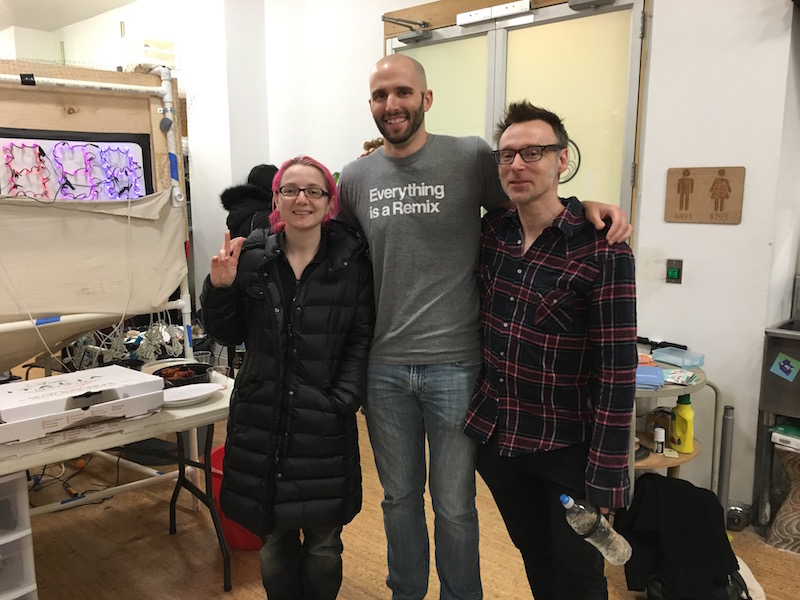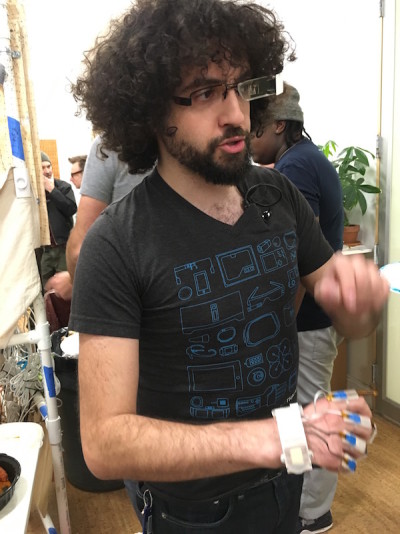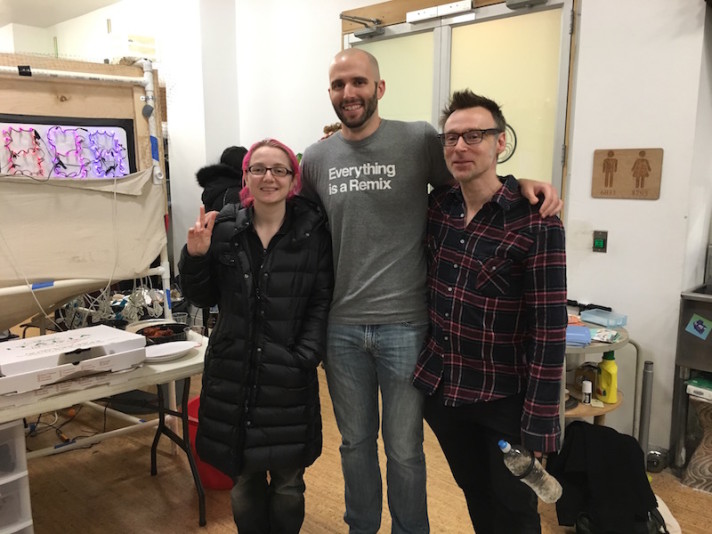
This week we held a community event that was all about documenting open source hardware. The event was part of Open Source Hardware Month, a monthlong celebration organized by the Open Source Hardware Association. Documentation is a critical — although easy to overlook — component of open source hardware. It can be very hard for users to build on or modify even the most open piece of hardware without clear documentation explaining how it works.


The event itself was held at the great new(ish) FatCat Fab Lab in Manhattan (which is also the home of a hot shot game — gifs above — that was the talk of the NYC Maker Faire), and drew creators from all across the city.
The opening discussion was about the open source hardware certification program that was recently announced by the Open Source Hardware Association. Part of the goal of the documentation days and nights behind held around the world is to make it easier for people to successfully apply for the free certification.

Zack showing off his hand computer controller
The heart of the event was a discussion by Phillip Torrone and Limor Fried of Adafruit Industries. Adafruit is the home of hundreds of thoroughly documented open source hardware products, and they discussed the evolution of that documentation from blog to wiki to custom site as well as some practical tips for designing better documentation (take a picture of every action!).
After the discussion there was an opportunity for everyone to discuss projects and their best practices for documenting projects. Documenting can be idiosyncratic to specific projects, so ultimately the best advice may be to jump in with whatever is comfortable and start documenting. If you wait for the perfect documentation platform you may end up not documenting anything at all!

Limor from Adafruit, Michael From Shapeways, and Peter From Fat Cat Fab Lab
By the end, the event served as a great reminder that the fantastic items you might find in a Shapeways shop are part of a collaborative and iterative design process. The Shapeways community loves to create together, and the night was an opportunity to reflect on the power of simple documentation in that collaborative process.


